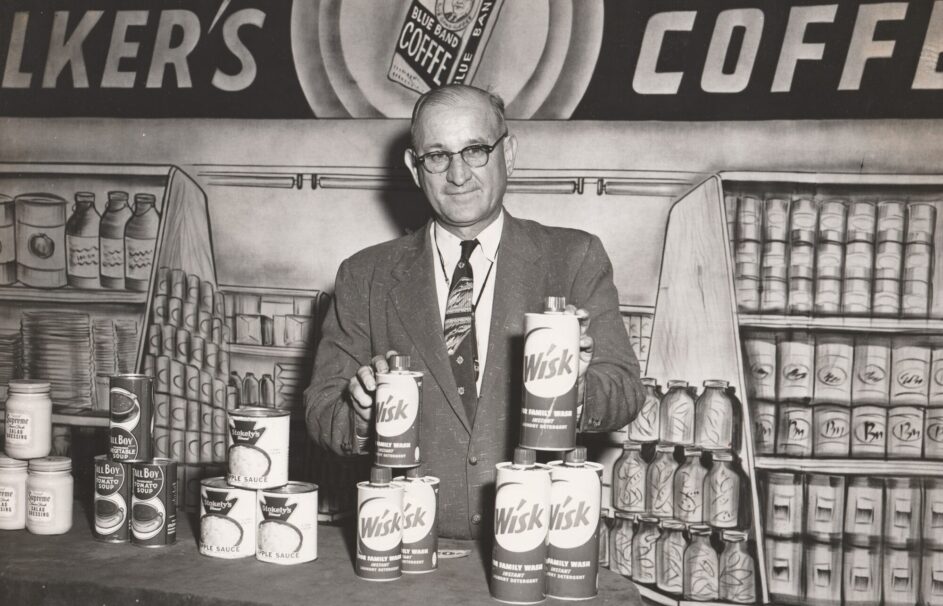Will we ever decide we’ve heard enough Cas Walker stories? Will we ever tire of hearing about throwing chickens off the roof, taking Dolly on her first visit to Nashville, going to war against fluoride or bringing Hazel Davidson and her poodle into the TV studio for a live appearance on the Milk Fund telethon?
Maybe – but not just yet, judging from the interest his name draws most any time he’s mentioned. This week marked the 21st anniversary of his death. He’d be 117 if he were still alive today. He lives on our memories, and for better or for worse, he’s part of who we are.
Next month, The University of Tennessee Press will introduce “Cas Walker, Stories on His Life and Legend,” edited by Joshua S. Hodge, a bright, likeable young doctoral candidate from Birmingham who was diagnosed with brain cancer after he started on the Cas Walker project. Hodge kept working despite his illness, and had the book substantially done when he died earlier this year.
The book will be introduced at Union Ave. Books, 517 Union Avenue, at 6 p.m., Friday, Oct. 11, by Dr. Ernest Freeberg, head of UT’s History Department. Others who contributed to the book will be there with stories to tell, too. But few can match Freeberg’s ultimate Cas Walker cred. He lives in Walker’s house on Gaston Avenue in North Hills.
The next event will be at 6 p.m. Thursday, Oct. 24, East Tennessee Historical Society. Walker’s close friend David West will be there with his banjo and his band, and so will Bradley Reeves, director of Appalachian Media Archives, with some old film footage to share.
The third event will be Tuesday, Nov. 5, in the Hodges Library auditorium on the University of Tennessee campus, time to be determined.
I will be at most (maybe all) of these events and will probably share a story or three if anybody asks me to. I met Cas when I worked at the Knoxville Journal and was assigned to interview him at the Maryville nursing home where he lived for a few years after he was (allegedly) diagnosed with Alzheimer’s Disease.
But I didn’t really get to know him until early one Saturday morning when he called me at home. I didn’t have Caller ID yet, so I had no idea who was on the other end of the line when I picked up the receiver and heard a rusty old voice croak, “Betty?” (insert long pause) “This is Cas.”
Startled, I didn’t respond immediately. He repeated himself: “Betty? (long pause) this is Cas. I got a write-up for you.”
For a hot second I thought it was John, my prankster brother who did a dead-on Cas Walker imitation, but was four years dead. This was the Old Coon Hunter, for real.
I’d met him when I was assigned to write a story promoting the Journal Milk Fund, which Cas had founded many years before – as memorialized in the first line of his TV theme song – “Pick up your morning paper when it hits the street. Cas Walker’s prices, they just can’t be beat.” Neither Jack Rose, the Journal’s chief photographer, nor I saw any sign that he had dementia when we interviewed him in that nursing home. He was lucid and funny and prideful and spoke in full paragraphs, pausing at the end of each to allow me to catch up with his story. The director of the nursing home said he was organizing nature hikes and giving out autographs and was a pleasure to know.
His wife, Virginia, died not long before that first time he called me, and he was still mourning her death. But he sounded pretty chipper as he told me he was going home to Gaston Avenue. Unburdened by any kind of modesty, false or otherwise, he knew this was a pretty big story, and he was calling to give me the scoop. He was happy to be going home, clear of mind and ready to sell some Supraderm Salve and world-class coon dogs.
He lived another seven or eight productive years after he was released from the nursing home, appearing in shows and greeting friends and fans at David West’s Ciderville music venue and the Museum of Appalachia until he was incapacitated by a massive stroke, from which he never recovered. He died at home, in what is now Ernie Freeberg’s living room. And he lives on in our collective memories.

